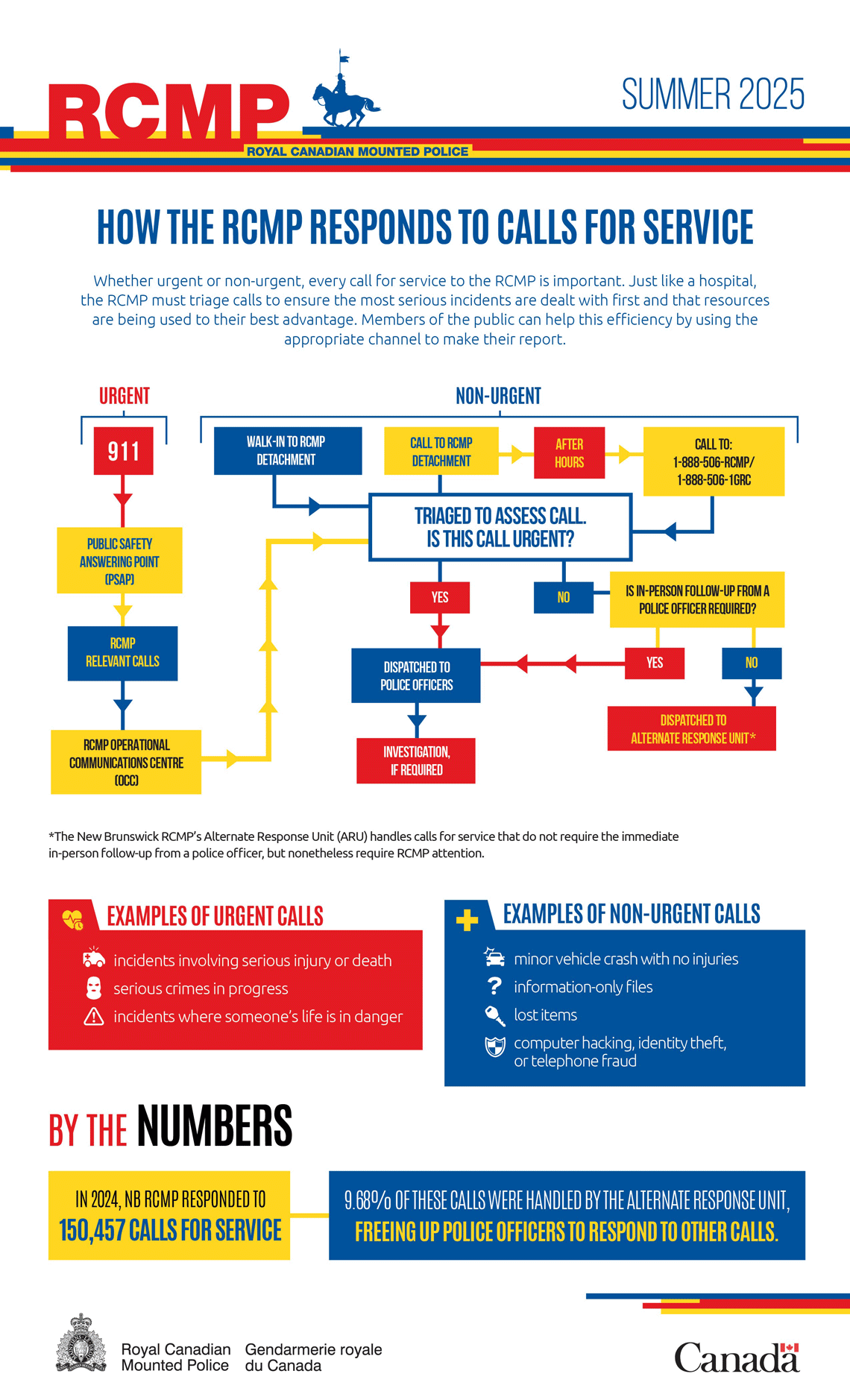Infographic: How the RCMP responds to calls for service

Text version: How the RCMP responds to calls for service
Whether urgent or non-urgent, every call for service to the RCMP is important. Just like a hospital, the RCMP must triage calls to ensure the most serious incidents are dealt with first and that resources are being used to their best advantage. Members of the public can help this efficiency by using the appropriate channel to make their report.
- Urgent
-
Urgent calls received via 9-1-1 go to a Public Safety Answering Point (PSAP). RCMP Operational calls are received by the RCMP Operational Communications Centre (OCC).
- Non-urgent
-
Non-urgent calls can be received via walk-ins to RCMP detachments, calls to RCMP detachments, or calls after hours to 1-888-506-RCMP/1-888-506-1GRC.
All calls are triaged to assess if the call is urgent. If it's urgent, it is dispatched to police officers for investigation, if required. If it's non-urgent, the call is assessed to determine if in-person follow-up from a police officer is required. If yes, it is dispatched to police officers for investigation, if required. If no, it is dispatched to the Alternate Response UnitInfographic calls for service footnote 1.
Examples of urgent calls
- Incidents involving serious injury or death
- Serious crimes in progress
- Incidents where someone's life is in danger
Examples of non-urgent calls
- Minor vehicle crash with no injuries
- Information-only files
- Lost items
- Computer hacking, identity theft or telephone fraud
By the numbers
- In 2024, RCMP responded to 150,457 calls for service
- 9.8% of these calls were handled by the Alternate Response Unit, freeing up police officers to respond to other calls
- Date modified:
